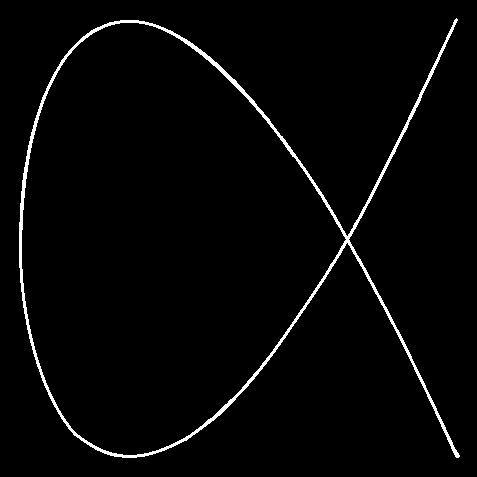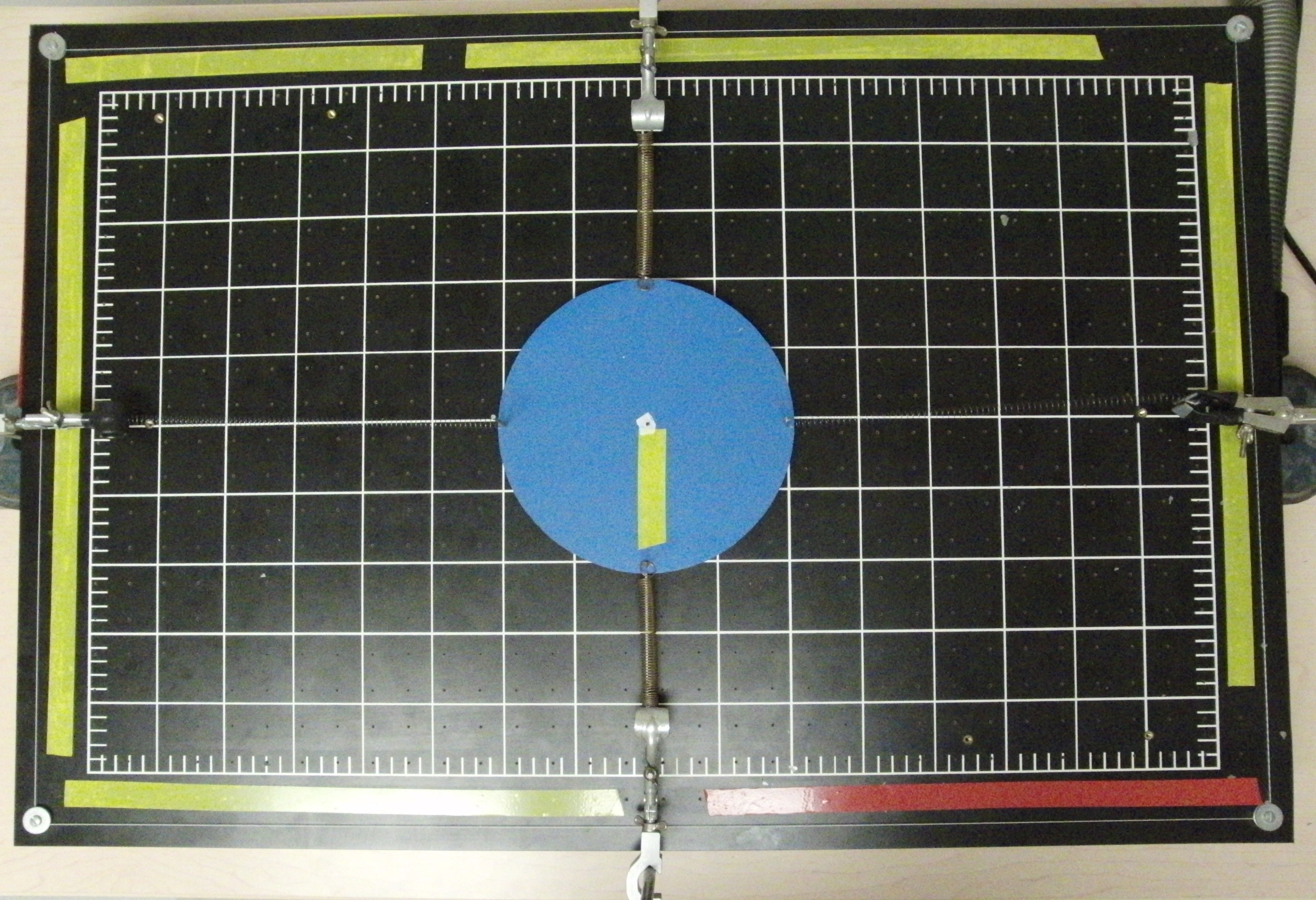This two dimensional oscillator makes Lissajous figures!
Watch The Video:
- Lissajous Figures
- Motion of a Particle
- Non-isotropic Oscillators
Theory:
Consider the motion of an object subjected to a linear restoring force that is always directed towards the origin of the coordinate system. The restoring force is represented by the equation:
F = -kr
Or:
mr'' = -kr
For a multidimensional oscillator where the spring constants are not all the same, we have a non-isotropic oscillator. In this case, the motion can be represented by the component equations:
mx'' = -k1x
my'' = -k2y
where k1 and k2 represent the different spring constants. In this case, there are two different frequencies of oscillation, ωx = (k1 / m)1/2 and ωy = (k2 / m)1/2. Solving the equations, the motion of the object is described by:
x = A cos(ωxt + α)
y = B cos(ωyt + β)
The constants of integration (A, B, α, β) are all determined by the initial conditions. For the most part, the object will follow a semi-chaotic path. However, for the case where ωx and ωy are commensurate:
ωx / n1 = ωy / n2
where n1 and n2 are some arbitrary integers, the object will follow a closed loop known as a Lissajous figure. The object will go around this loop, and after a certain amount of time, the object will return to its initial position and then repeat its path.
In the video above, the Lissajous figure is similar to a figure eight with half of one loop removed. The path the air puck traces out looks like:

Figure 1: 3:2 Ratio Lissajous Figure
The air puck will follow this path when the phase difference is π / 2, and the ratio of frequencies is 3:2 (as in 3ωx = 2ωy).
Apparatus:
- Air table with air supply
- Air puck with hooks for springs
- Four springs (Note: The springs should be in two pairs, one pair for the x-direction and one pair for the y-direction. The spring constant of each pair must be so that ωx and ωy are commensurate.)
- Four clamps and supports for them.

Figure 2: Apparatus Set-up (viewed from above)
Procedure:
- Assemble the apparatus, referring to figure 2 and the video.
- Pull the puck in one direction and let go. Observe the Lissajous figure that is traced out by the air puck.



